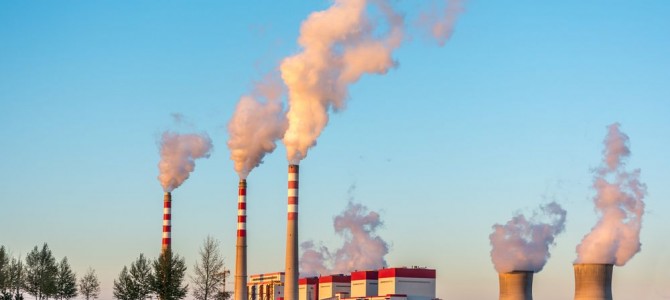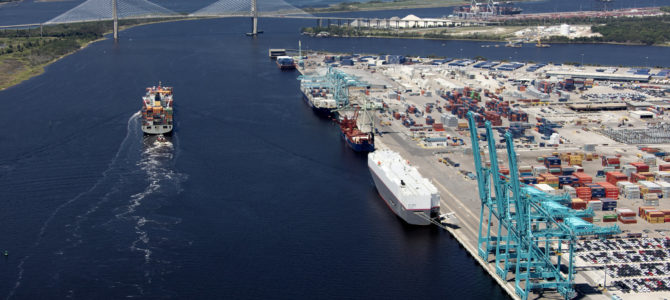
When voters in West Virginia cheered for President Trump in a hardhat, brandishing “Trump Digs Coal” signs, they probably weren’t expecting him to dig the coal industry into an even deeper hole.
Although Trump’s policies have helped boost U.S. coal exports – increasing overseas sales by 60 percent last year to 97 million tons – his confrontational trade policy risks pulling the plug on ambitious plans for U.S. energy expansion by taking an overly tough line with key partners including the European Union and Canada.
It’s a move that is diametrically opposed to the government’s aim of creating bigger overseas markets for U.S.-produced fossil fuels. Trump is facing the fundamental contradiction at the heart of his strategy: if he prioritizes protectionist trade policies, America’s quest for global energy dominance will be dead in the water.
‘America First’ Doesn’t Cut Any Ice With Coal Producers
Even with last year’s surge in exports, there’s no ignoring the fact that America’s domestic market for coal is declining. The sector’s output hovers at its lowest level in 40 years, with additional plants shutting down each year. Twenty-seven were earmarked for closure in 2017 alone. By contrast, international demand for coal for use in power plants and steelmaking is still strong – a situation that is ripe for exploitation by U.S. producers.
The biggest markets for American coal, however, are those that have been targeted by Trump’s tariffs on U.S. steel imports: Brazil, Japan, Ukraine, Canada, India, South Korea and China. The danger for America’s coal producers is that these countries will slash their U.S. orders in retaliation for the tariffs. Any reduction in demand could have serious consequences for the scale of production: China, Japan, India, and Turkey together bought almost 14 million tons of metallurgical coal from America in 2017, a quarter of its overseas total.
China has already threatened to punish the U.S. on coal if Trump continues moving ahead with tariffs on Chinese goods. It’s part of a strategy to specifically target U.S. products – produce, oil and gas, coal – that come from Trump country.
Other Export Opportunities At Risk
Of course, other markets offer potential for US exports, especially in Southeast Asia and other parts of the developing world, which still have a relatively high demand for coal that is expected to remain stable for the foreseeable future.
Thermal coal imports by Southeast Asia are predicted to more than double to 226 million metric tons by 2035, according to UK-based research firm Wood Mackenzie, with Vietnam likely to become the region’s biggest importer by 2040. The Trump team wants to establish a fossil fuel alliance to partner with many of those countries, but they could well be spooked by the prospects of a trade war.
Even if China stays true to its word to move away from coal for environmental reasons by switching to liquefied natural gas (LNG), it’s a move that still has the potential to hit America hard, as imports from the U.S. — projected to increase to 8.1 billion cubic feet per day by 2020 — would be at risk.
Risk To The Energy Sector
However you frame it, a global trade war isn’t going to help revitalize the U.S. energy sector or promote America’s diplomatic interests abroad. The EU and South Korea are not only key energy trading partners, but are also pivotal to ongoing highly sensitive geopolitical calculations vis-à-vis North Korea and Iran (which hinges on the nuclear deal and EU’s relationship with Iran and Russia on energy and trade). Trump can’t afford to drop this ball.
The sentiment of America First in Trump’s trade policies is admirable – every country should aspire to putting domestic economic health first – but the reality is that his pro-worker rhetoric is contradicted by his strategy. Trump’s anti-free-trade perspective sees American economic relationships as a zero-sum game with just one winner. The truth is that some of the trading terms Trump sees as unfair — allowing other nations to “stick it to America” — are also the very same terms under which American energy dominance is a viable possibility.
Striking A Balance
The White House can’t have it both ways: there’s no chance of resurrecting its energy sector via expanding exports without healthy international trading relationships. The opportunities for competitive exports – a result of reduced environmental regulations combined with robust international demand – have opened up new global markets. But major trade disagreements could overturn America’s advantage, reducing its market share in every continent.
Getting tough on trade was a cornerstone of Trump’s manifesto, but if the net result is a sharp cutback on coal imports, it’s a policy that could hurt hard-working and economically “forgotten men and women” – the very people Trump promised would be newly empowered by his election to office.
Washington needs to make a stark choice. Does it want to drive Trump’s zero-sum bilateral trade philosophy to its ultimate, isolating conclusion and bury coal into a low-export-demand crater? Or should it play nice and expand America’s energy export dominance and boost the fortunes of the miners and energy workers Trump promised to stand behind?









